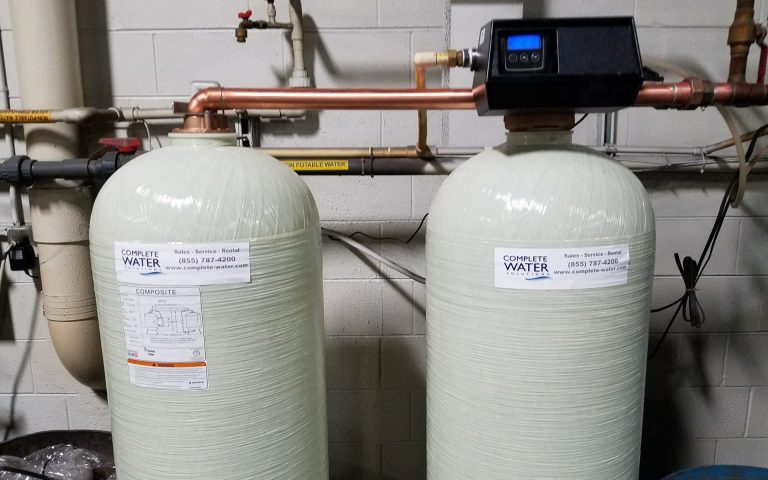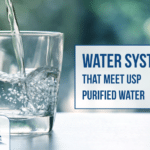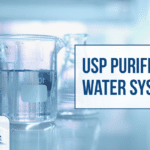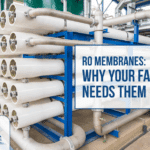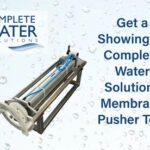How Much Salt Does An Industrial Softener Use?
When you’re looking into purchasing or maintaining your industrial water system, you may want to know exactly how much salt does an industrial softener use? It’s important to know that! The amount of salt used in an industrial water softener system is a vital factor in both the water’s hardness and quality. In addition, the amount of product needed to achieve the desired water quality and hardness directly impacts your process and the bottom line. Finding solutions to lower your salt usage can lead to substantial savings in the long run. This makes the salt usage for your industrial water softener system a vital factor when you rely on quality water in your processes.
On Average, How Much Salt Does an Industrial Softener Use?
First, let’s take a look at the amount of salt that many large commercial and industrial water softeners use. The most common ratio of salt to resin that we have found is 15 lbs./ft.³ of resin. This results in higher quality water but is not the most efficient. Some facilities may choose to lower the salt usage to only 6 lbs./ft.³ resin to save costs and where higher quality water is less important. When our technician visits your facility, we will often perform a “Brine Study” on your facility’s water to determine what level your system is operating at. Using an instrument called a salometer, we will take measurements of the brine concentration at the water softener’s drain during the brine cycle. If there isn’t enough salt getting into the water, your CWS technician will make adjustments to increase the brine concentration and provide effective softening. If there is too much salt being used, however, it is a good indication that the softener’s resin requires replacement.
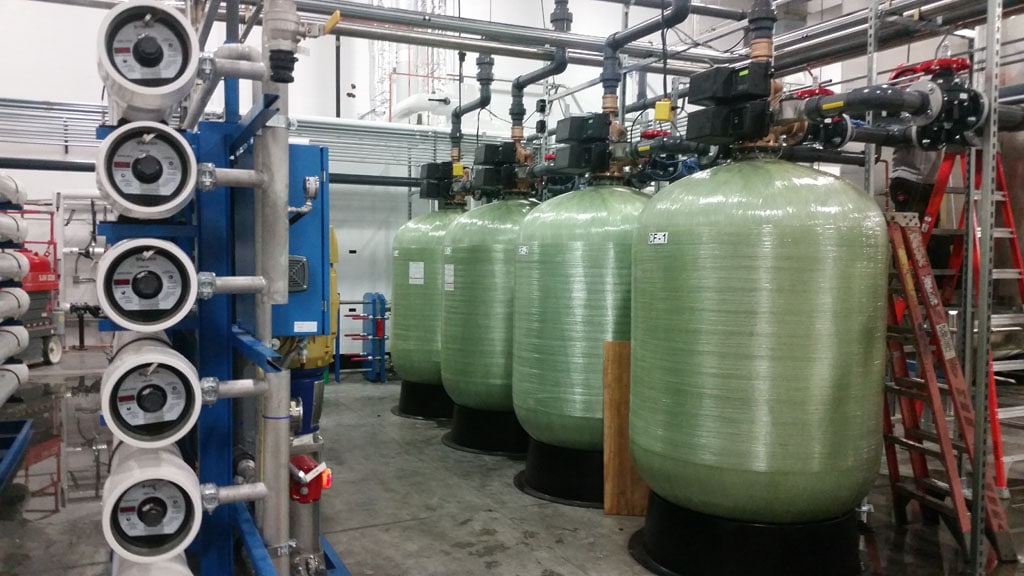
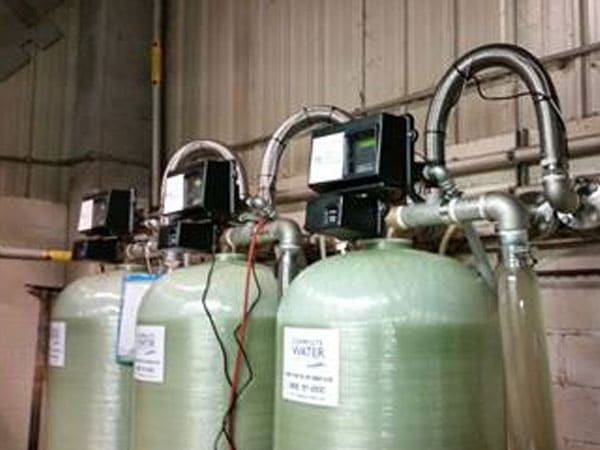
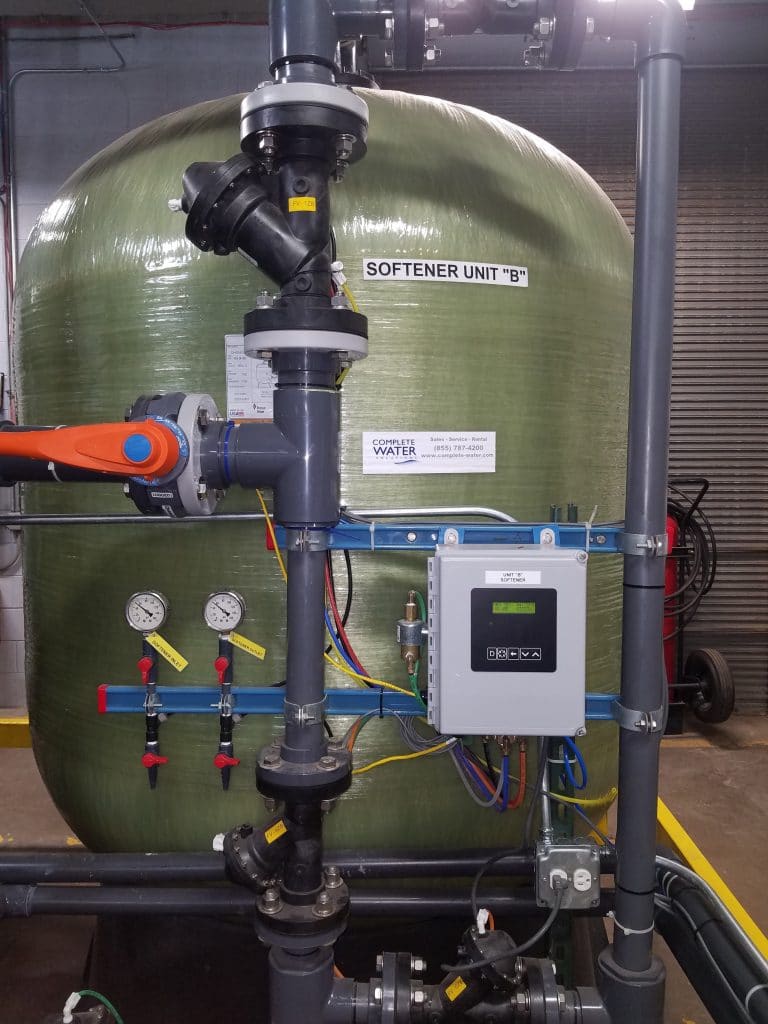
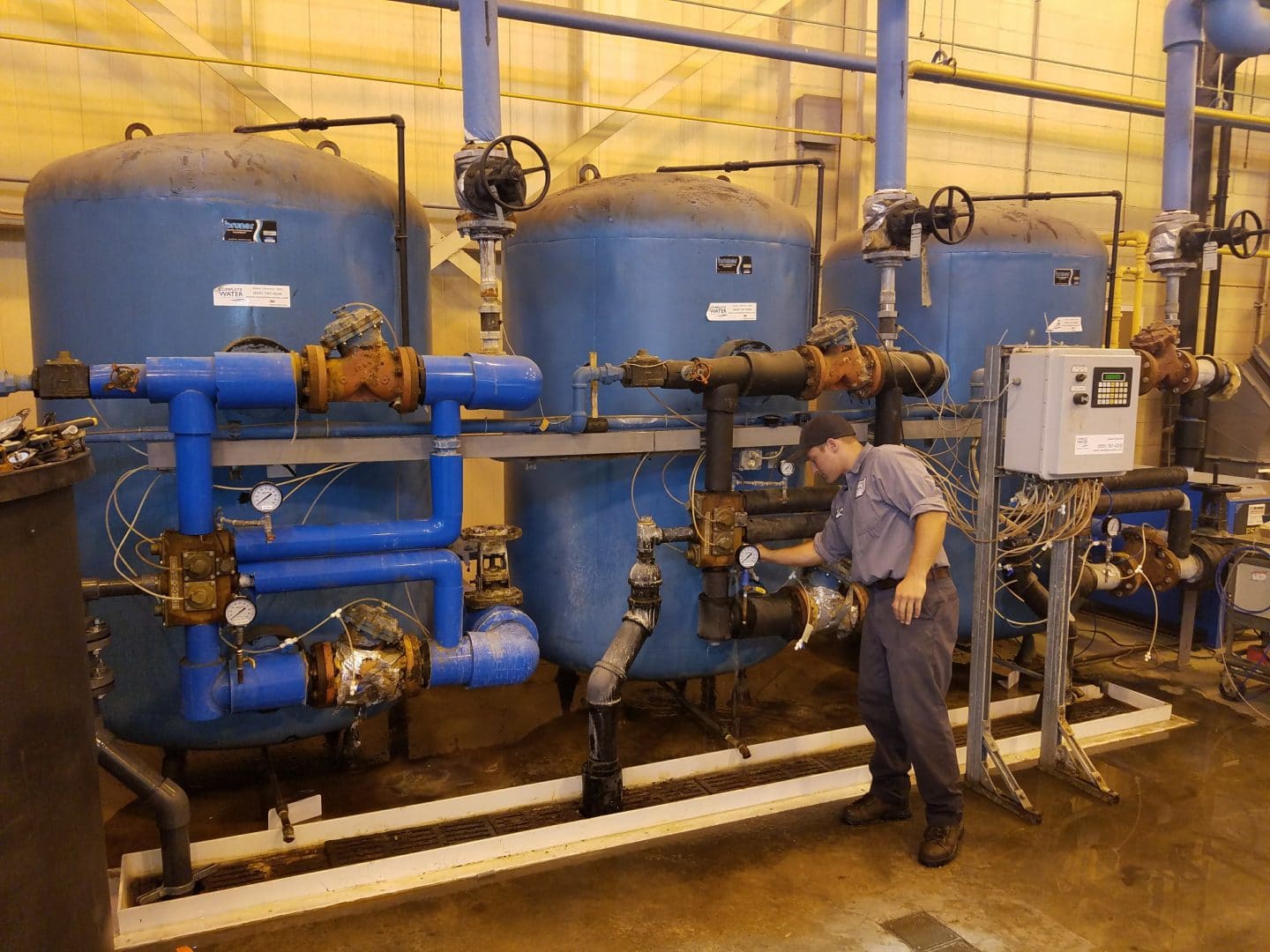
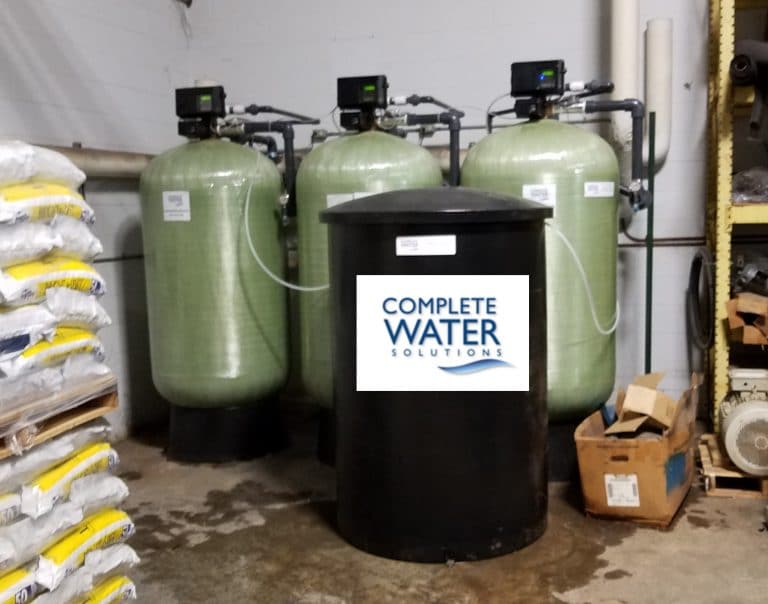
What Can I Do to Get the Best Results From My Industrial Water Softener?
Beyond salt consumption, there are other steps you can take that can help in preventing most softener failure issues. With commercial and industrial water softeners being used for a variety of applications from general water conditioning to industrial ingredient water, the upkeep of industrial and commercial softeners has become one of the most important tasks in many facilities. How can you get the best results? Most facilities will test their softener system either once a shift or daily. While this is a great way to determine if your softener system is working or has failed it does not do so well in preventing problems. The solution? Preventative maintenance!
Common Water Softener Preventative Maintenance Tasks Include:
- Valve Wear & Tear – Pulling internal parts to verify wear and tear and replace if necessary
- Brine Study – Performing a brine study can determine if the softener is running efficiently
- Solenoid Replacement or Rebuild – External solenoids should be rebuilt
- Clean Pilot Screens – If your controller system is running hydraulically, cleaning the screens can help.
- Lubricate – Lubricating Fleck softener piston(s) & Aquamatic valve shaft(s)
- Visual Inspections – Visual inspections of valve pistons can verify leaking points
- Resin Testing- Having your resin tested can help determine the life, condition, and identify foulants.
- Backwash Flow Controllers – Checking and cleaning backwash flow controllers can help with making sure you have enough flow for backwash and no restrictions for brine.
- Resin Level – Checking the resin level can help determine if you have enough resin in the softener. You will lose some resin over time.
- Pressure Gauges – Knowing what your pressure drop is across the softener can help determine if there are other additional problems occurring.
- Compound Gauge – Installing a compound pressure gauge (one that shows both pressure and vacuum) is an addition to help with verifying proper operation.
- Cleaning Brine Tank – Taking the time to clean the brine tank annually can help with proper brine injection. During this time, you can inspect and clean the brine valve. Sometimes salt sludge and dirt can clog the brine valve, causing brine issues.
Learn more about our preventative maintenance program HERE and in the video below and contact us today to schedule your initial appointment! We’d be happy to work with you when you’re wondering how much salt does an industrial softener use?
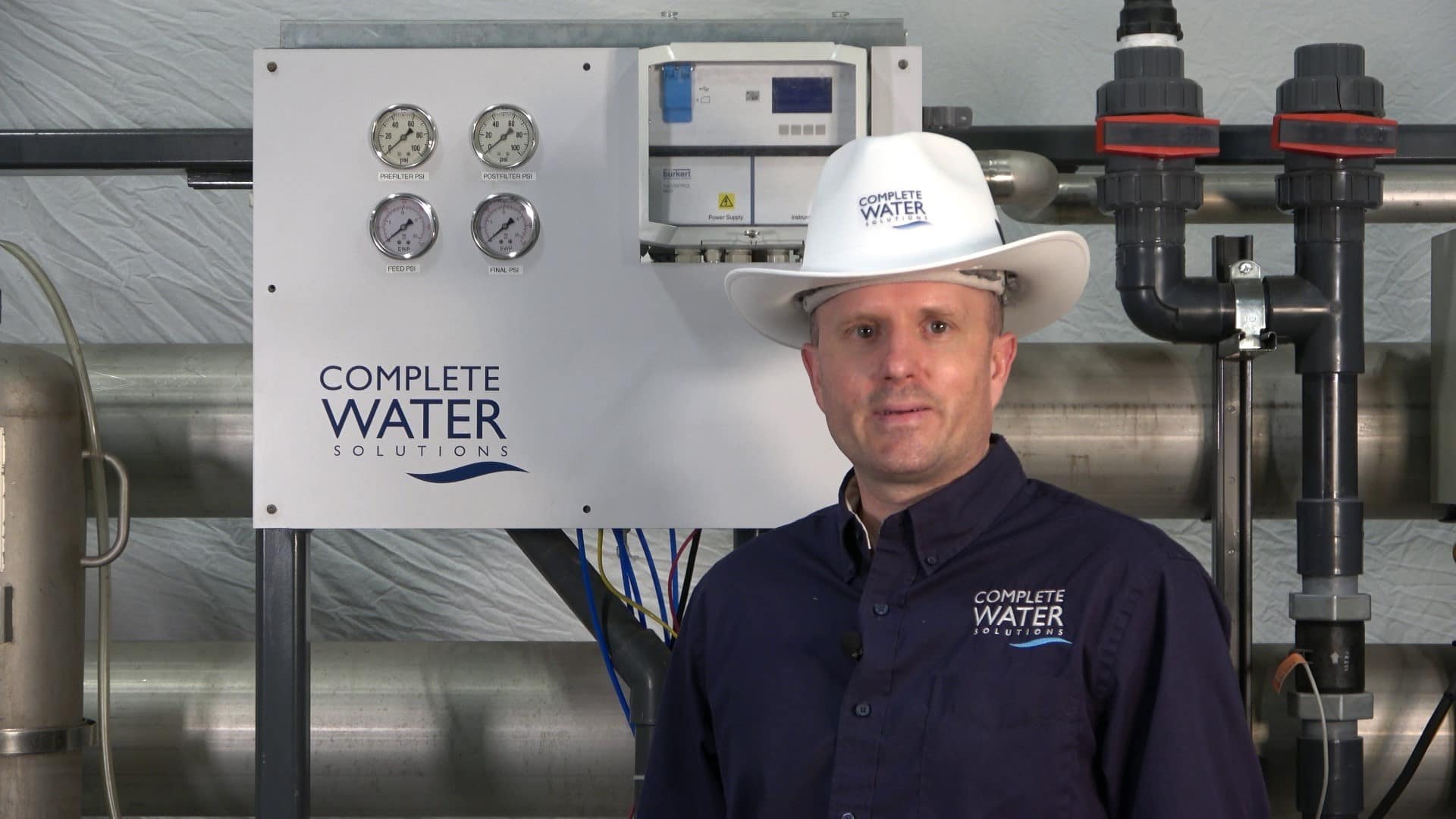
With over 30 years of hands-on experience in the water treatment industry, Nathan Olszak is a trusted water treatment expert. He specializes in designing, engineering, and servicing water treatment systems. As the owner of Complete Water Solutions, Osmonics, and Membrane Cleaning Pro, Nathan has built a reputation for delivering customized water treatment solutions that enhance efficiency, reliability, and water quality across various industries, including the medical, commercial, and manufacturing sectors.
Nathan’s journey in water treatment began as a service technician. He gained in-depth knowledge by working with all major brands of equipment, including Veolia, Suez, Bruner, Culligan, Pentair, Aquamatic, Osmonics, GE Water, Marlo, Lakeside, Fleck, Autotrol, US Filter, ION Pure, Siemens, Evoqua, and many others. This hands-on expertise, combined with his technical certifications, has made him a leader in water system engineering and water management.
Credentials & Expertise
- Certifications: David H. Paul Reverse Osmosis Certification, PLC Programming
- License: Power Plant Operating Engineer 3rd Class
- Specialties:
- Design & engineering of water treatment systems and advanced water systems
- Custom water filtration systems and solutions
- Installation, automation, and repair of water treatment systems
- Expertise in Reverse Osmosis (RO), Deionization, Water Softening, Carbon Filtration, Iron Filtration, UV Treatment, Ultrafiltration (UF), Process Filtration, CEDI/EDI, and more
- Specialized knowledge in Boiler Feed Water, Tower Makeup Water, and drinking water production for industries such as bottling, pharmaceuticals, and food processing
- Project management and reclaiming of water system waste for other uses
- Evaluation of raw water sources and potential contamination risks
- Industrial water treatment strategies to prevent corrosion and optimize system performance
- Boiler water treatment to enhance energy efficiency and system longevity
Nathan’s commitment to excellence extends beyond equipment sales and service. He works closely with clients to develop tailored water treatment services that optimize performance and meet their operations’ unique demands. His expertise covers methods that mitigate water impurities, ensure fresh water accessibility, and maintain regulatory compliance. It also includes the design of high-efficiency reverse osmosis systems for industrial use.
Nathan focuses on the latest technology in water conditioning, water softeners, filters, and pumps to improve maintenance and efficiency. His experience in laboratory testing and biofilm control ensures the highest industry standards in water treatment processes and water management.
Additionally, his deep understanding of infrastructure and water data analysis provides long-term, cost-effective solutions that promote health and safety. His expertise ensures that businesses receive top-tier, quality water treatment solutions.
For insights into the latest industry trends, innovations, and best practices, explore the Complete Water Solutions Blog, where Nathan shares valuable information on water filtration systems, sustainability, and water solutions engineering.
Give Us A Call (855) 787-4200 or Email info@complete-water.com


